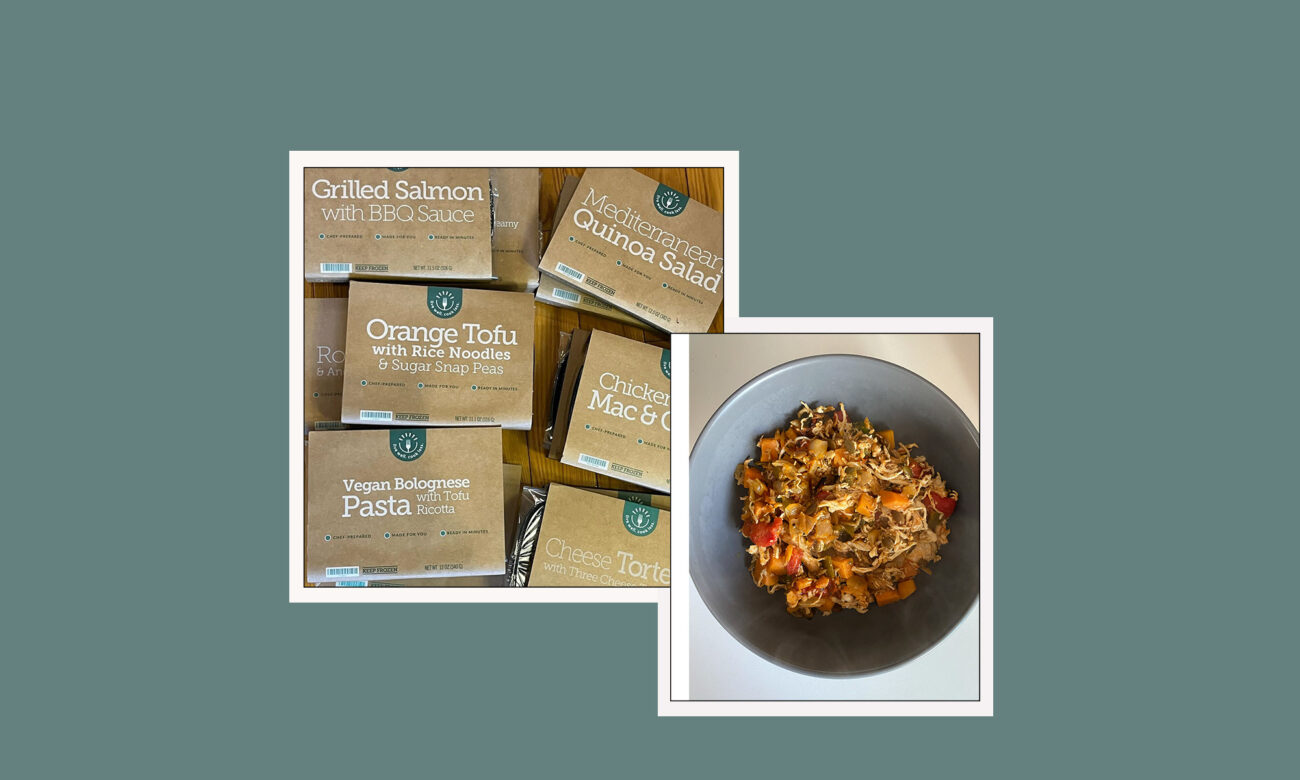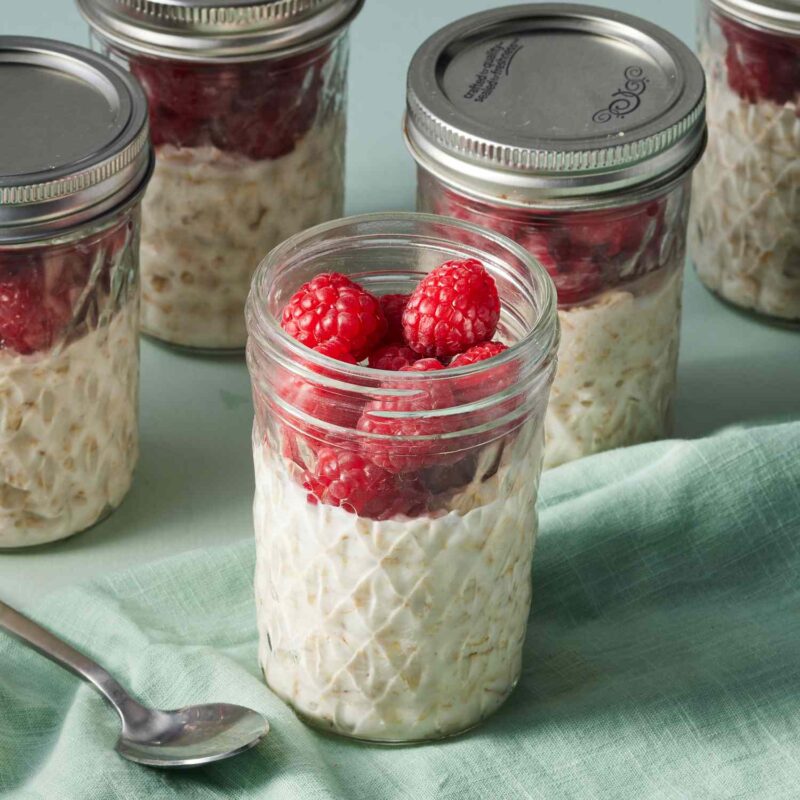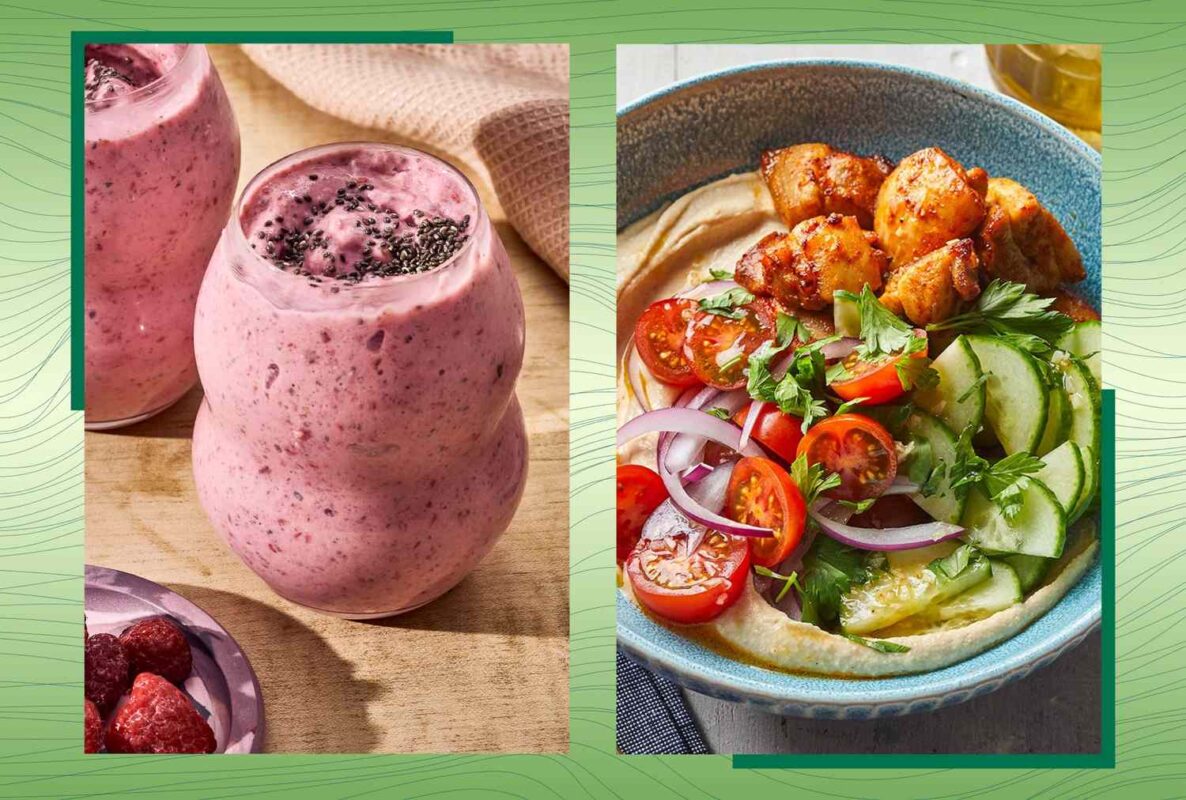Blog
4 Anti-Inflammatory Proteins for Weight Loss

- Anti-inflammatory proteins like fish, legumes and soy support healthy metabolism.
- Lean meats and fermented soy boost gut health, regulate blood sugar and aid in sustainable weight loss.
- Balanced meals, sleep, exercise and stress control are key for long-term weight health.
Protein plays a key role in reducing inflammation and supporting metabolic health—two factors that can make weight loss more achievable and sustainable. While no single food guarantees weight loss, some high-protein options offer added benefits that support overall well-being. “Choosing anti-inflammatory proteins helps to lower chronic inflammation that drives insulin resistance,” says Kaitlin Hippley, M.Ed., RDN, LD, CDCES. “When insulin resistance is high, blood sugars rise, fat storage is activated and losing weight can become more challenging.”
“There’s really no such thing as a ‘weight loss protein,'” adds Marissa Beck, M.S., RDN. “The real health benefit comes from choosing a variety of protein sources that support overall health by lowering inflammation, improving cholesterol and stabilizing blood sugar.”
Read on for a closer look at the anti-inflammatory protein foods that dietitians recommend most, and why they’re worth adding to your plate.
1. Fatty Fish
Fatty fish are top-tier when it comes to anti-inflammatory protein sources. Rich in omega-3 fatty acids like EPA and DHA, these fish support heart and brain health—plus, they help reduce inflammation. “Salmon is my number one favorite and highest recommended protein source when following an anti-inflammatory diet because of its high levels of omega-3 fats and micronutrients,” says Lindsay Fencl, RDN. These healthy fats can also lower blood pressure, reduce triglycerides and support healthy cholesterol levels—things that are often disrupted in people with insulin resistance.
Beck says that the omega-3s found in fatty fish “have well-documented anti-inflammatory benefits” and are a valuable part of a balanced, healthy diet. Including fish like salmon, mackerel or sardines in a few meals a week aligns with the Mediterranean diet recommendations, which have been shown to reduce the risk of chronic disease and improve metabolic health.
2. Legumes
Legumes—such as beans and lentils—are rich in fiber, plant-based protein and antioxidants that support gut health and reduce inflammation. “Thanks to fiber and polyphenols, beans and lentils earn their title of powerhouse plant proteins,” says Hippley. “They naturally lower inflammation and support sustainable weight loss by improving gut health and fighting oxidative stress.”
Emerging research also suggests that legumes may help the body produce more of its own appetite-regulating hormones, such as glucagon-like peptide 1 (GLP-1), which helps regulate blood sugar levels and increases feelings of fullness and satisfaction. This is thanks to its protein and calcium content, which may have a synergistic effect that promotes increased GLP-1 production after eating.
3. Lean Meats
Lean meats—like chicken, turkey, venison and bison—are protein-rich and lower in saturated fat, making them an ideal option for those seeking to reduce inflammation and lose weight. “These lean animal-based proteins all offer different micronutrients that play a role in managing inflammation,” says Beck.
“Wild game meat, such as venison, elk and bison, tends to be leaner, richer in iron and raised without additives common in conventionally farmed meats,” says Fencl. These meats offer several anti-inflammatory nutrients, including zinc and selenium, which support immune regulation and help neutralize oxidative stress.
4. Tofu & Tempeh
Fermented soy-based proteins, including tofu and tempeh, are rich in complete protein and isoflavones—compounds with anti-inflammatory and antioxidant effects. “These plant proteins come packaged with fiber and phytochemicals that support gut and heart health,” Beck tells EatingWell. These benefits are particularly valuable for reducing markers of inflammation and supporting insulin sensitivity, which can make weight regulation more manageable.
Fermented soy products like tempeh may also support gut health by promoting the growth of beneficial bacteria and reducing digestive inflammation, especially when paired with a fiber-rich diet. Recent research suggests that the health of the gut microbiome may have a significant impact on metabolism and body weight.
Anti-Inflammatory Recipes to Try
Other Tips for Healthy Weight Loss
While eating protein can support metabolism, reduce inflammation and promote weight loss, it’s only one piece of the puzzle. “What often gets missed in typical weight loss advice is that it’s not just one food or one nutrient that determines our health status,” Beck explains. “Eating habits and other behaviors matter just as much, if not more.” Here are some things you can do to support healthy weight loss:
- Eat regularly throughout the day. “Eating regular meals and snacks can help regulate blood sugar and prevent an evening binge or emotional eating cycle that many people struggle with,” says Beck. Eating consistently also supports stable energy levels and helps reduce cravings.
- Include a variety of whole, nutrient-dense foods. “Research consistently shows that dietary diversity promotes a healthy gut microbiome, supports disease prevention and enhances weight management,” says Fencl. Include fruits, vegetables, whole grains, lean proteins and healthy fats as part of your routine.
- Prioritize sleep. “Sleep deprivation has been shown to increase inflammatory molecules like cytokines and C-reactive protein,” says Fencl. Aim for 7 to 9 hours of sleep per night.
- Move your body regularly. Regular physical activity can improve insulin sensitivity, reduce inflammation and improve mood. Even low-impact movement—like walking and stretching—can help regulate appetite and support sustainable weight loss. Try to engage in at least 150 minutes of moderate-intensity activity per week.
- Manage stress. “Managing stress can lower inflammation, control cravings and stabilize blood sugars, making weight loss more achievable,” says Hippley. Try deep breathing, meditation or yoga.
Our Expert Take
There’s no such thing as a magic protein for weight loss, but incorporating a variety of nutrient-dense protein sources into your eating pattern can reduce inflammation and support weight loss. When paired with other healthy habits—like eating a balanced diet, regular exercise, adequate sleep and stress management—you can support long-term health and sustainable results.












